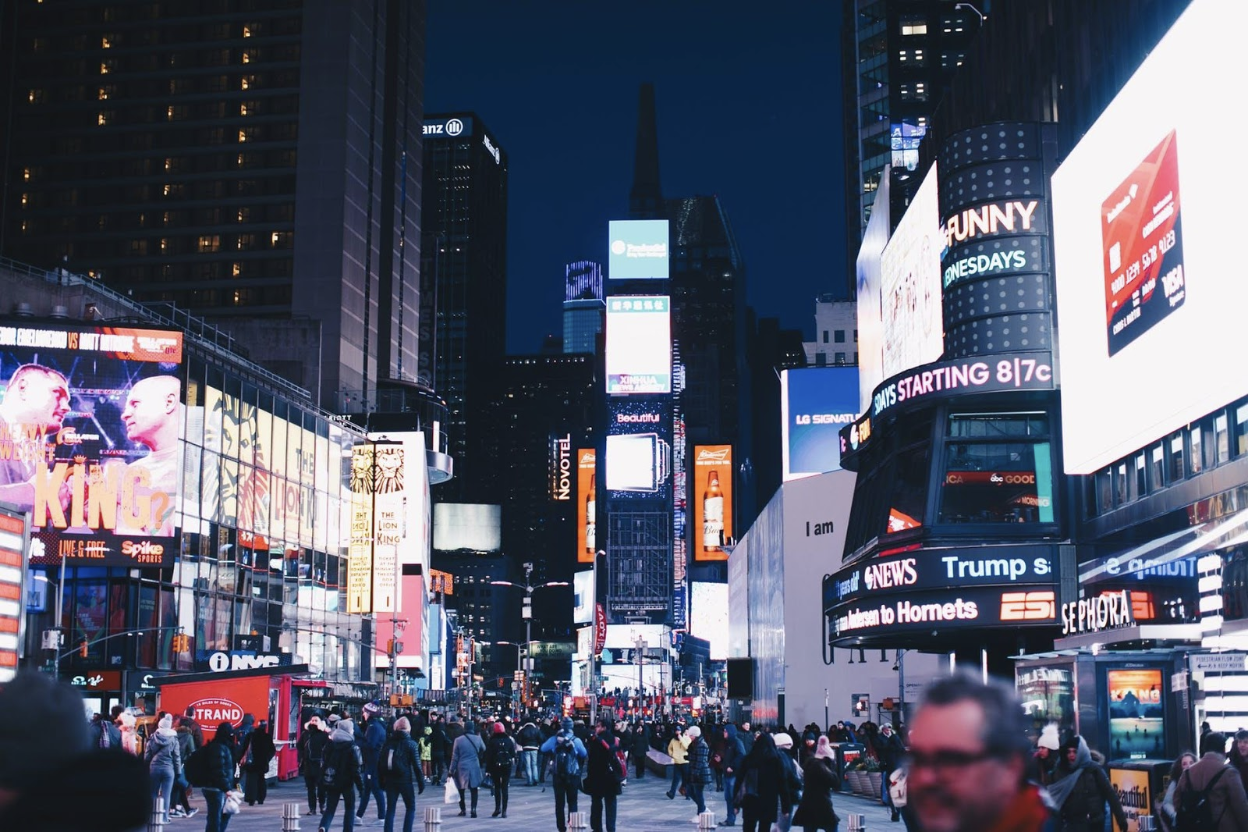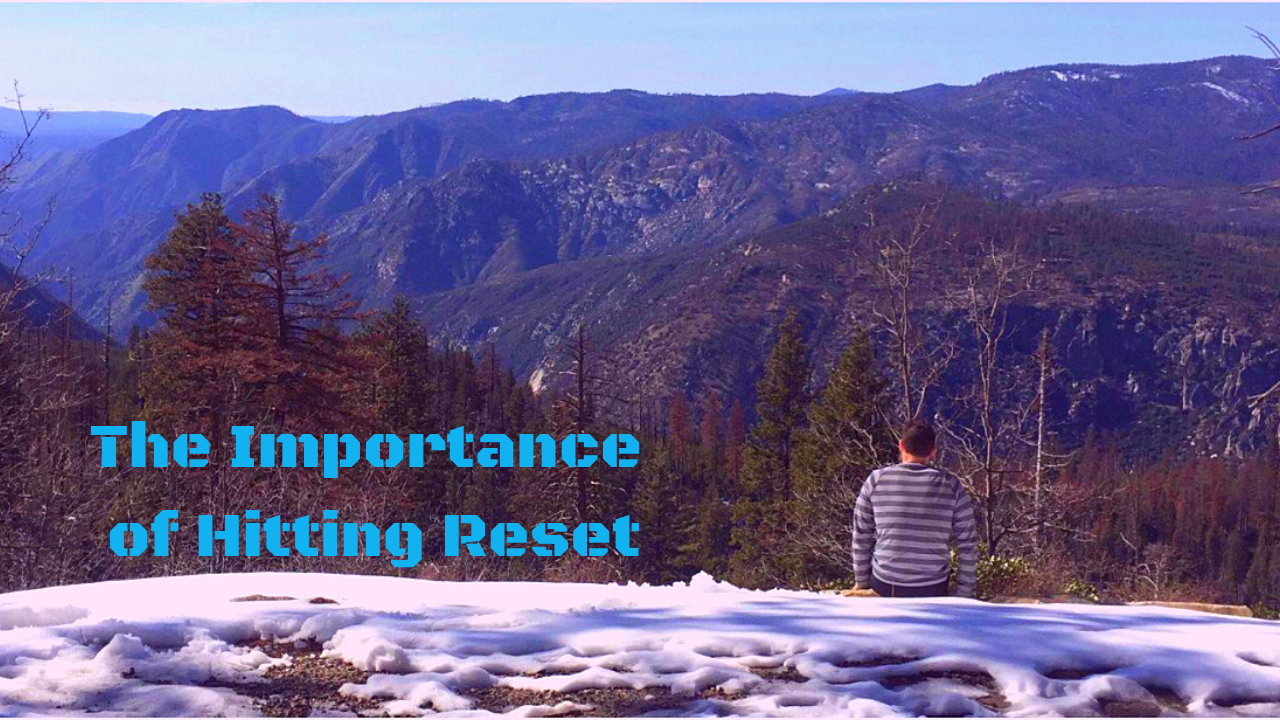The Importance of Hitting Reset
Written by Dr. Ed Kassis Keep close to nature's heart...and break clear away, once in a while, and climb a mountain or spend a week in the woods. Wash your spirit clean. -John MuirThe human brain is incredibly complex and superbly malleable in its ability to adapt to ever-changing stimuli. The fossil record clearly shows that Homo sapiens, the human species, debuted about 200,000 years ago and civilization began 6,000 years ago. While this is a mere blink in the evolutionary history of Earth, the number is still an abstraction for us living here today.If we were to travel back in time, we would see the early humans living in the Great Rift Valley of Africa (Ethiopia, Kenya, and Tanzania today). Days were spent in a hostile and challenging wilderness by seeking shelter, foraging, hunting, fishing, tool making, and ensuring that the genes of the strongest and most fit get passed on to the next generation. The human brain evolved to provide a clear advantage over rivals to excel in these areas and we prospered as a species.Today's city brain is overstimulated, overtaxed, prone to fatigue and making errors. We no longer spend the majority of our time in nature and are constantly bombarded with visual and auditory stimuli from every direction. The smart phone has only made matters worse; now the office comes home with us, we are constantly connected digitally, and we base our value on the number of followers and 'likes' we have on social media accounts. We are frazzled, constantly busy and 'on the go.' It is mentally exhausting.The effects of city living without dedicated and regular time in nature have a number of side effects that are clearly outlined in the medical scientific literature. In a number of studies, people who spend little or no time in green space have measurable reductions in mental acuity, problem solving, creative thinking and sensory perception. Rates of depression, anxiety and obesity are significantly higher in this group as well. These are all clearly linked with excessive time indoors. People that live near green space have an associated decrease in mental distress and a reduction in over a dozen chronic diseases including heart disease, diabetes, anxiety and asthma. Objective measures of stress hormones, protein markers, blood pressure and heart rate all show meaningful improvements in people who regularly spend time outdoors in nature. Even the simple act of looking at photos of nature activates parts of the brain associated with happiness and serenity.Modern life and city living significantly impair our mental and physical health.
Keep close to nature's heart...and break clear away, once in a while, and climb a mountain or spend a week in the woods. Wash your spirit clean. -John MuirThe human brain is incredibly complex and superbly malleable in its ability to adapt to ever-changing stimuli. The fossil record clearly shows that Homo sapiens, the human species, debuted about 200,000 years ago and civilization began 6,000 years ago. While this is a mere blink in the evolutionary history of Earth, the number is still an abstraction for us living here today.If we were to travel back in time, we would see the early humans living in the Great Rift Valley of Africa (Ethiopia, Kenya, and Tanzania today). Days were spent in a hostile and challenging wilderness by seeking shelter, foraging, hunting, fishing, tool making, and ensuring that the genes of the strongest and most fit get passed on to the next generation. The human brain evolved to provide a clear advantage over rivals to excel in these areas and we prospered as a species.Today's city brain is overstimulated, overtaxed, prone to fatigue and making errors. We no longer spend the majority of our time in nature and are constantly bombarded with visual and auditory stimuli from every direction. The smart phone has only made matters worse; now the office comes home with us, we are constantly connected digitally, and we base our value on the number of followers and 'likes' we have on social media accounts. We are frazzled, constantly busy and 'on the go.' It is mentally exhausting.The effects of city living without dedicated and regular time in nature have a number of side effects that are clearly outlined in the medical scientific literature. In a number of studies, people who spend little or no time in green space have measurable reductions in mental acuity, problem solving, creative thinking and sensory perception. Rates of depression, anxiety and obesity are significantly higher in this group as well. These are all clearly linked with excessive time indoors. People that live near green space have an associated decrease in mental distress and a reduction in over a dozen chronic diseases including heart disease, diabetes, anxiety and asthma. Objective measures of stress hormones, protein markers, blood pressure and heart rate all show meaningful improvements in people who regularly spend time outdoors in nature. Even the simple act of looking at photos of nature activates parts of the brain associated with happiness and serenity.Modern life and city living significantly impair our mental and physical health.  Photo by Jimmy Teoh on Pexels.comWhile short doses of time in nature will result in meaningful subjective and objective benefits in mental and physical well-being, the benefits of longer stretches are even more profound.Immersion in the wilderness for extended periods of time, away from sound pollution, computers, cell phones and city living allows important areas of the brain to calm and rest. After a few days in the wilderness we become much more attune to our surroundings. We begin to smell, hear, and see things that were ignored before and our attention span improves along with qualitative thinking. We begin to feel more alive and more connected to what our primitive ancestors experienced thousands of years ago. In short, we become happier, better adjusted and smarter.
Photo by Jimmy Teoh on Pexels.comWhile short doses of time in nature will result in meaningful subjective and objective benefits in mental and physical well-being, the benefits of longer stretches are even more profound.Immersion in the wilderness for extended periods of time, away from sound pollution, computers, cell phones and city living allows important areas of the brain to calm and rest. After a few days in the wilderness we become much more attune to our surroundings. We begin to smell, hear, and see things that were ignored before and our attention span improves along with qualitative thinking. We begin to feel more alive and more connected to what our primitive ancestors experienced thousands of years ago. In short, we become happier, better adjusted and smarter. Small doses of time in nature have profoundly positive effects on health and happiness. Yosemite National Park, Photo by Kathryn DoughertyWhile this is my ultimate aim in life, I am not advocating that we all quit our jobs, sell our devices and live a life foraging for food in the wilderness. We all have responsibilities that we need to manage. However, there are several simple measures that we all can take to give our stressed brains a break from the chaos. Just a few minutes a day can make a significant difference in our quality of life.
Small doses of time in nature have profoundly positive effects on health and happiness. Yosemite National Park, Photo by Kathryn DoughertyWhile this is my ultimate aim in life, I am not advocating that we all quit our jobs, sell our devices and live a life foraging for food in the wilderness. We all have responsibilities that we need to manage. However, there are several simple measures that we all can take to give our stressed brains a break from the chaos. Just a few minutes a day can make a significant difference in our quality of life.
- Take regular walks in your local metro park
- Plant a flower/vegetable garden and tend to it (can people plant indoor ones if they are in apartments or condos)
- Attract birds and butterflies to your outdoor living space
- Volunteer: plant trees, maintain hiking paths
- Spend quiet time in your backyard or outdoor space for your apartment dwellers
- Hike, bike, run, kayak, canoe etc. Try to make a habit of doing it in more natural surroundings (And always adhere to the principles of leave no trace).
- See the wild and visit our National Parks. This can be done in a tent, cabin, or hotel but by spending meaningful time in the wilderness you can experience how re-connecting with the natural world can lead to dramatic improvements in your stress, serenity and happiness.
About the author: Ed is an outdoor enthusiast, nature lover, conservationist, CrossFitter, budding triathlete, husband, father and surgeon. He invites you to follow him on Instagram (@thewildernessrx). View his personal blog at www.thewildernessrx.com

